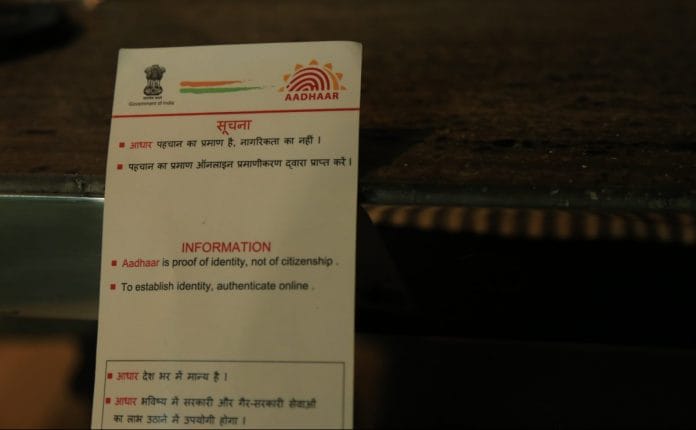The court will examine Aadhaar in light of last year’s landmark privacy judgment, and decide issues like its legality and if it can be made mandatory.
New Delhi: The Supreme Court will Wednesday decide the issue of the legality of Aadhaar — one of the Narendra Modi government’s biggest pushes on the policy front.
A five-judge constitution bench headed by Chief Justice of India (CJI) Dipak Misra will decide whether Aadhaar, which has enrolled over 118 crore people, is constitutionally permissible, and whether it can be made mandatory.
The legal battle against Aadhaar, which began in 2012, is also what necessitated the Supreme Court to declare privacy as a fundamental right under the Constitution — its legality will now be examined in the light of that August 2017 ruling.
Also read: Supreme Court to deliver landmark Aadhaar verdict tomorrow
The Unique Identification Authority of India (UIDAI), the nodal agency for Aadhaar, has been strengthened in the meantime. From being backed by a 2009 notification of the now-defunct Planning Commission, UIDAI is now a full-fledged statutory body after a law was passed in September 2016.
Among the grounds for the challenge is the fact that the law passed by Parliament to give legal backing to Aadhaar was through a Money Bill, something that allowed the government to bypass the Rajya Sabha.
Broadly speaking, there are three possible scenarios before the court.
Uphold its constitutional validity
If the court declares the Aadhaar framework as constitutional, the government would be free to use it as envisaged in the Aadhaar Act. The scenario would be a shot in the arm for Modi’s digital initiatives, including Jan Dhan Yojana, digital certificates and welfare payments.
Even if the court upholds the validity of the law entirely, it would have to decide on whether valid consent was obtained for the enrolments and whether Aadhaar use can be extended to all government functions.
It would be mandatory for citizens to produce Aadhaar in order to receive welfare scheme benefits.
Declare it unconstitutional
The petitioners challenging Aadhaar want the court to turn back the clock on the entire Aadhaar scheme. If the court finds the law to be violative of fundamental rights, the 118 crore enrolments and linkages would be in peril.
Balancing act
The court could also partially read down the Aadhaar law while allowing the government some leeway in its usage.
It can decide to strike down some provisions, which the court deems to be violative of citizens’ right to privacy, and hold the rest of the Aadhaar Act constitutional.
Alternatively, the bench could also allow an ‘opt-out’ provision for citizens who don’t wish to take any government benefits.
Also read: God, please save India from our ‘wine ‘n cheese’ Aadhaarophobics
In an interim order in 2015, another constitution bench of the top court had allowed the government to continue with enrolments, while restricting Aadhaar’s use to a few social welfare schemes.







It has become a virtual battlefield of bakts against the enquirers.